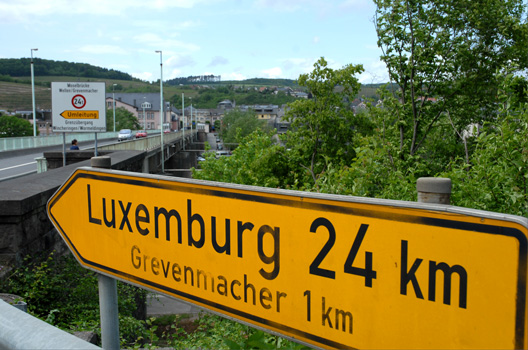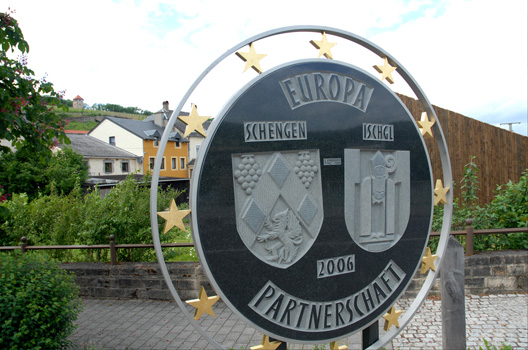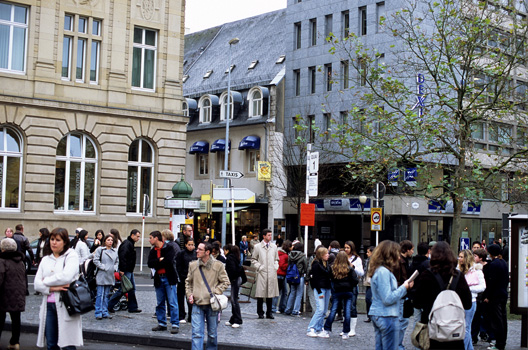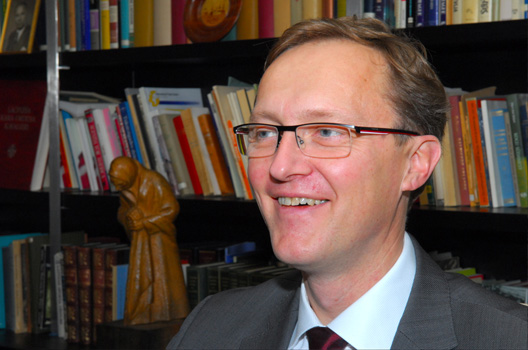 The Grand Duchy of Luxembourg, second-smallest member of the European Union (EU) in population but by far its wealthiest, officially takes over the EU Council’s rotating presidency from Latvia at midnight July 1.
The Grand Duchy of Luxembourg, second-smallest member of the European Union (EU) in population but by far its wealthiest, officially takes over the EU Council’s rotating presidency from Latvia at midnight July 1.
The handover, to be marked by celebrations and a huge “European picnic” in the capital city’s Place d’Armes, comes just as debt-ridden Greece prepares for a referendum on its future in the nineteen-member Eurozone—and its possible exit from the EU altogether.
Yet Jean-Louis Wolzfeld, Luxembourg’s Ambassador to the United States, says that in its new role, which expires Dec. 31, 2015, Luxembourg will not deal directly with the Greek fiscal crisis or other foreign-policy issues. Since the Treaty of Lisbon took effect in 2009, he said, such things have been handled in Brussels—currently by Italy’s Federica Mogherini, the EU’s current High Representative for Foreign Affairs and Security.
 A plaque commemorates European cooperation in the small town of Schengen, Luxembourg. Photo: Larry Luxner
A plaque commemorates European cooperation in the small town of Schengen, Luxembourg. Photo: Larry Luxner
This arrangement means the country holding the rotating presidency is responsible for planning and chairing all other council meetings—especially those dealing with foreign trade, justice and security matters, environmental protection, and other domestic issues.
“Sometimes people feel that EU affairs are a bit remote from their preoccupations and far above their heads. This presidency gives our countries the chance to be much more closely involved,” Wolzfeld told the New Atlanticist. “It gives our people the feeling that they have a direct influence on European policies.”
In 2014, Luxembourg’s annual per-capita GDP income totaled $111,716, according to the International Monetary Fund—nearly twice that of the second-wealthiest EU member state, Denmark. Yet that’s misleading, said Wolzfeld, because about 180,000 commuters work in Luxembourg but live in neighboring Belgium, France or Germany, boosting the duchy’s daytime population from 550,000 to about 720,000.
 Tourists and locals mingle in Luxembourg’s Place d’Armes, site of a festive “European picnic” to be held July 3 from 4 p.m. to midnight to mark the official handover of the six-month rotating presidency of the European Union from Latvia to Luxembourg. Photo: Larry Luxner
Tourists and locals mingle in Luxembourg’s Place d’Armes, site of a festive “European picnic” to be held July 3 from 4 p.m. to midnight to mark the official handover of the six-month rotating presidency of the European Union from Latvia to Luxembourg. Photo: Larry Luxner
“It’s like Washington, DC, where people commute from Maryland and Virginia every day,” he said. “Our actual per-capita income figures should be much lower. It’s not like we’re poor, but we are not as rich as people think.”
Wolzfeld and Andras Razāns, Latvia’s Ambassador to the United States, marked the handover at a June 30 ceremony at Washington’s Dumbarton House, attended by hundreds of diplomats, US State Department officials, dignitaries and journalists.
“In December 1997, at a meeting of EU leaders in Luxembourg, a decision was taken to enlarge the EU with countries that either had been under Soviet domination or—in the case of the Baltics—were occupied by the Soviet Union,” said Razāns. “And here we are, eighteen years later, a full-fledged EU member state passing over the presidency of the EU to Luxembourg. I think that’s a very symbolic and meaningful transition.”
Frances G. Burwell, Director of the Atlantic Council’s Transatlantic Relations Program, said this marks the twelfth time since 1960—and the first since 2005—that Luxembourg occupies the rotating presidency.
Luxembourg, a mountainous country measuring only 998 square miles, is already home to several key institutions such as the EU’s Court of Justice and its Court of Auditors. It also hosts some offices of the European Parliament and the European Commission (EC).
“Although it’s not as consequential in terms of policy as it used to be, the presidency does make a difference in the atmosphere and in the way crises are handled,” she said. “In the old days, each country would set out its list of priorities for the presidency. They still do that, but now they tend to be overshadowed by what the EC is doing. So there’s already a significant body of work that gets carried over from one presidency to another.”
Burwell said that with twenty-eight member countries, it takes much longer for any one country to repeat a presidency. After Luxembourg, next on the list is the Netherlands.
“In fact, all countries make a big deal out of the presidency,” she said. “Ironically, the British presidency is the second half of 2017, the year by which they’re supposed to have their referendum on EU membership.”
Whether or not Luxembourg’s six months on the world stage will be remembered “will be because of what happens on their watch,” she suggested.
“Luxembourg is very well-placed to help the EU move forward whatever issue is on the agenda,” Burwell said. “Even though they have a very small diplomatic core, they’re extremely experienced, they’ve done this before, and they’re very well-connected.”
 Andris Razans, Latvia’s Ambassador to the United States, is co-hosting a reception June 30 to mark his country’s handover of the six-month rotating presidency of the European Union to Luxembourg. Photo: Larry Luxner
Andris Razans, Latvia’s Ambassador to the United States, is co-hosting a reception June 30 to mark his country’s handover of the six-month rotating presidency of the European Union to Luxembourg. Photo: Larry Luxner
One of its best-known politicians is Former Prime Minister Jean-Claude Juncker, who led Luxembourg from 1995 to 2013. On Nov. 1, 2014, Juncker succeeded Portugal’s José Manuel Barroso as President of the European Commission.
“Luxembourg is a very stable country, and they’re not suffering from the migration crisis,” Burwell said. “And because they will chair the ministerial meetings, if a piece of legislation runs into any trouble, they can play the good mediator and broker a deal.”
One of Luxembourg’s two priorities going forward, said Ambassador Wolzfeld, is to boost European growth and employment “based on the EC initiative to raise €315 billion to finance strategic investment projects.” The second one, he said, “shall be to deepen the union’s social dimension, in order to achieve a triple-A social rating.”
Wolzfeld also said Luxembourg would work closely with the Obama administration to achieve a “sustainable and forward-looking agreement” at this December’s planned United Nations Conference on Climate Change in Paris. And for the next six months, he promised, his tiny country will also use its clout to push forward talks on the proposed Transatlantic Trade and Investment Partnership TTIP linking the US and EU economies.
Image: Sign points the way to Luxembourg’s capital city, and to Grevenmacher, a small town on Luxembourg’s border with Germany. Effective July 1, Luxembourg will take over the six-month rotating presidency of the EU from Latvia. Photo: Larry Luxner
